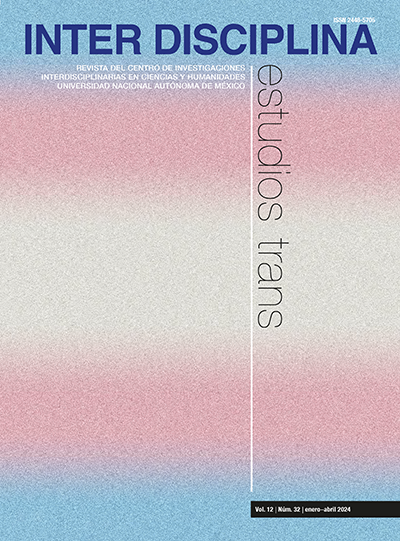Importance of including binary and non-binary trans people in population censuses
Main Article Content
Abstract
The work presented wants to express the magnitude of the responsibility held by the institutions in charge of generating information regarding the country's population and its characteristics, specifically information related to gender identity and sexual orientation. This research analyzes two surveys conducted in previous years, where especially trans people were considered, the first one is ENDOSIG, planned and executed by CONAPRED in 2018, and the second one conducted by the office of national statistics, INEGI, with the title ENDISEG 2021. The specific purpose in both surveys is far from similar to each other, but both of them show the incapacity to recollect essential information about trans-people and important characteristics of their lives and needs, and most importantly the surveys fail to recollect information about trans-people beyond discrimination and violence towards them. Creating a survey that collects information about trans-people and their conditions is considered highly necessary for policymakers and the work that can be done to implement a public mechanism or policy that reduces economic, political, and social disparities among the Mexican trans-population.
Downloads
Article Details
Citas en Dimensions Service
References
CONAPRED. 2018. Encuesta sobre Discriminación por Motivos de Orientación Sexual e Identidad de Género (ENDOSIG). http://www.conapred.org.mx/index.php?contenido=pagina&id=611.
INEGI. 2021. Encuesta Nacional sobre Diversidad Sexual y de Género (ENDISEG). https://www.inegi.org.mx/programas/endiseg/2021/#Documentacion.
Organización Mundial de la Salud (OMS). 2017. Salud y derechos humanos, 29 de diciembre. https://www.who.int/es/news-room/fact-sheets/detail/human-rights-and-health#:~:text=La%20Constituci%C3%B3n%20de%20la%20OMS,de%20salud%20de%20calidad%20suficiente.
Salem, Sara. 2014. Feminismo islámico, interseccionalidad y decolonialidad. Tabula Rasa, 21: 111-122, julio diciembre.

Esta obra está bajo una Licencia Creative Commons Atribución-NoComercial-SinDerivar 4.0 Internacional.

